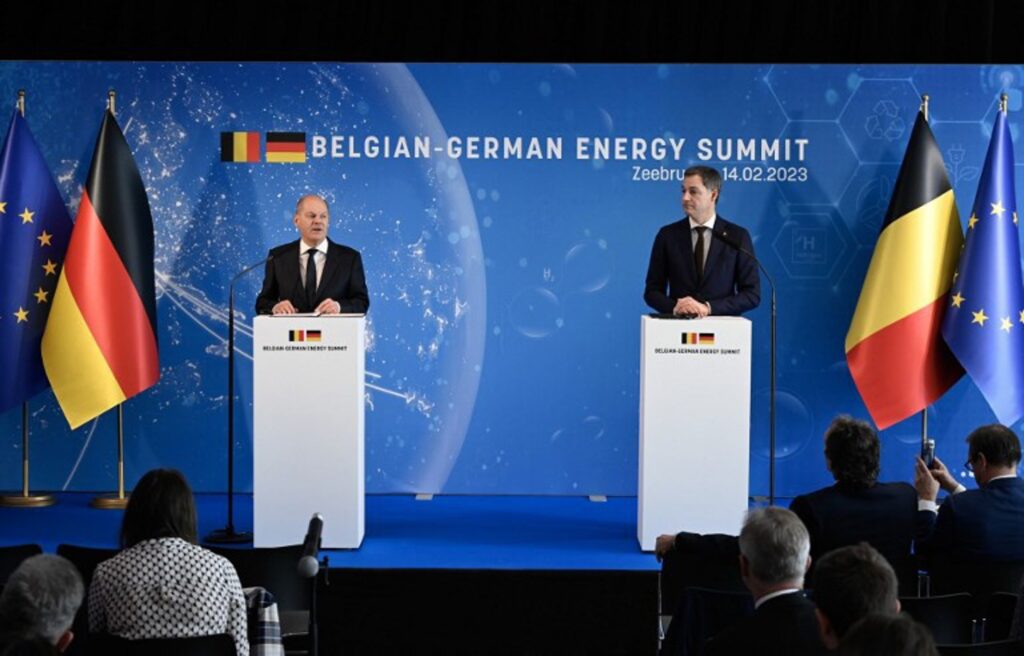Belgium and Germany, already close partners in energy matters, wish to strengthen this collaboration in the near future, Prime Minister Alexander De Croo and German Chancellor Olaf Scholz said on Tuesday in Zeebrugge.
The German chancellor was in Zeebrugge for a Belgian-German energy summit, the first of its kind. The location was not chosen at random. Since the war in Ukraine, the port of Zeebrugge has become a crucial link in the supply of natural gas from Norway in particular and liquified natural gas (LNG) from the United States and Qatar to the rest of Europe.
It was partly thanks to imports through Zeebrugge that Germany survived the winter even though it could no longer rely on Russian gas, the German chancellor acknowledged. “Thank you,” he said. “It was important for Germany.”
Cooperation saved Europe from recession
“It is this cooperation between European countries that has allowed Europe not to sink into a recession,” Prime Minister De Croo stressed. “Zeebrugge has played its role as a gateway. But what is good for the German economy is also good for Belgian companies.”
Belgium and Germany want to further strengthen this collaboration. The aim is, among other things, to link up their hydrogen infrastructures by 2028. Belgian grid operator Fluxys is a European leader in hydrogen and is working hard to expand the grid.
The capacity to send natural gas to Germany will also be significantly increased before the end of this year. Fluxys is working hard to double the existing pipeline from Zeebrugge to Germany, which will increase transmission capacity by a quarter and boost export capacity to the German border by 8 gigawatts.
LNG terminal capacity in Zeebrugge to be increased by half
Fluxys is also working on higher capacity in Zeebrugge. The LNG terminal is expected to have a 50% increase in capacity this year, from 20 to 30 gigawatts.
Aside from gas and hydrogen, the two countries also want to exchange more electricity. Electricity grid operator Elia and its German counterpart, Amprion, want to build a second high-voltage line for both grids. The two countries will also cooperate more closely on CO2 capture and the construction of offshore wind farms.
The energy summit should therefore be a “booster” for cooperation, said Federal Energy Minister Tinne Van der Straeten, who was also present in Zeebrugge on Tuesday.
'Belgium is a European energy crossroads'
“Belgium is a European energy crossroads,” she noted. "Our country exported thirteen times more gas to Germany in 2022 than in 2021. And today we are preparing the energy future with reinforced cooperation on renewable energies and green hydrogen.”
This reinforced collaboration between Belgium and Germany fits in with Europe’s plans to become energy independent.

